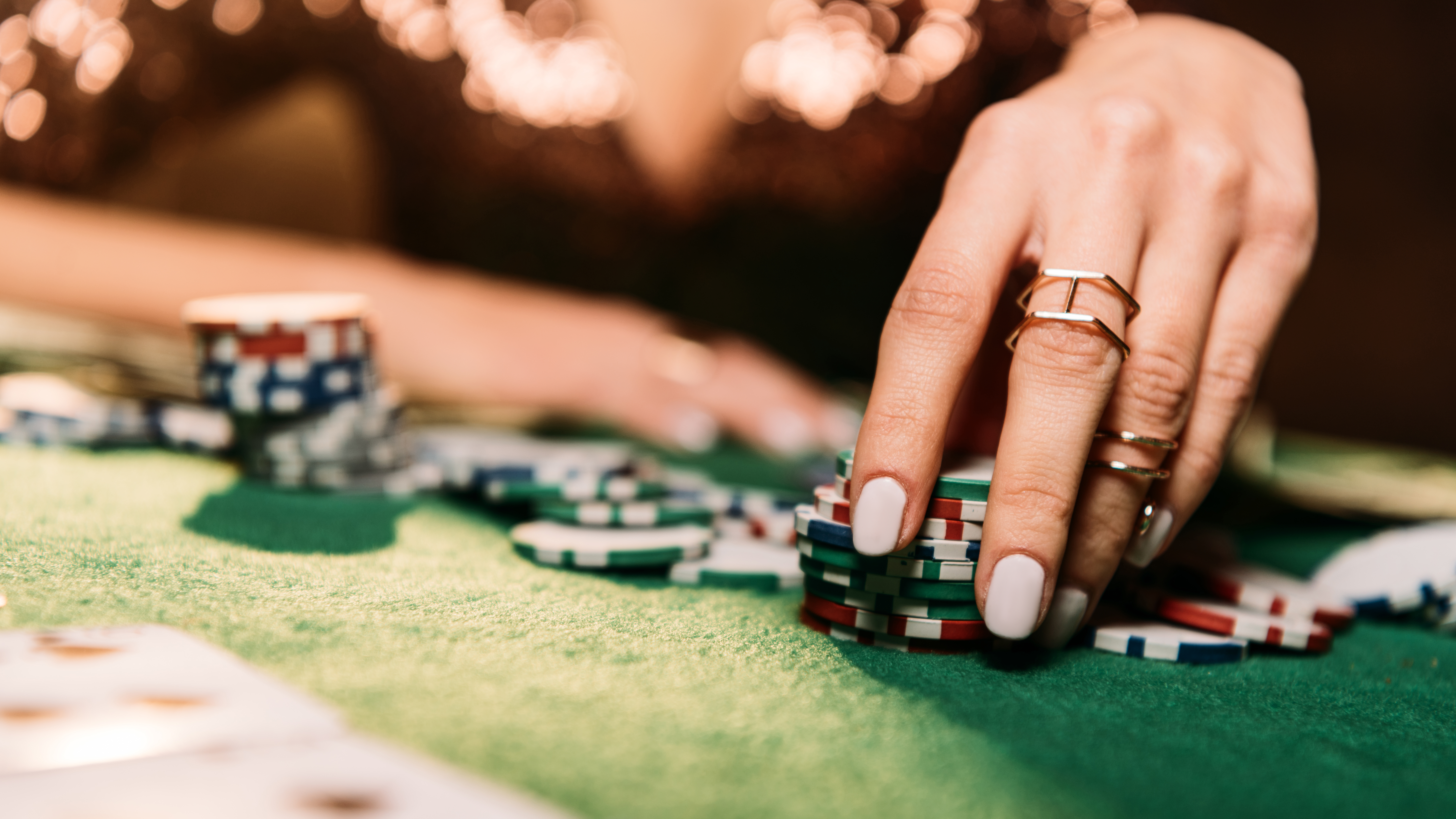
Gambling. Nearly everyone does it at some point. Whether it’s playing card games, horses the lottery or the slots, there’s something appealing and fun about gambling. But since everyone does it from time-to-time, when does gambling become an addiction? The explanation that seems most acceptable to Gamblers Anonymous members is that compulsive gambling is an illness, progressive in its nature, which can never be cured, but can be arrested. Before coming to Gamblers Anonymous, many compulsive gamblers thought of themselves as morally weak, or at times just plain ‘no good’. The Gamblers Anonymous concept is that compulsive gamblers are really very sick people who can recover if they will follow to the best of their ability a simple program that has proved successful for thousands of other men and women with a gambling or compulsive gambling problem.
1. You’ve Gambled Too Much Money
If you’ve lost more than you could risk while gambling, it’s a sign that it’s grown out of control. Are you gambling with money that you really can’t afford to lose, such as rent costs? Even if you ultimately won the money back (or even came out ahead), the fact that you were gambling money that you couldn’t lose is dangerous.
2. You’ve Regretted Not Stopping
Have there been times when you wanted to stop gambling, but couldn’t? That means that you weren’t able to control your gambling behavior, and it’s a sign that you may need help to stop gambling.
3. You’ve Stopped Having Fun
Is gambling more stressful than fun? That’s a clear indicator that you’ve become addicted. When you gamble for recreation, it makes sense: you’re still enjoying it, you’re having fun, and it’s light-hearted. When you gamble to get money back, or because you feel like you have to, it’s become a dangerous and compulsive behavior.
4. You’ve Missed Important Things for Gambling
This is a great sign that you’re addicted to anything. If you’ve missed important things, such as being there for your family, because you’ve been gambling, it’s a sign that you have a problem. It means that your urge to gamble is more important than anything else in your life, and that means the urge needs to be addressed.
5. You’ve Gotten Caught in a Cycle of Recovering Losses
Are you trying to win money back that you’ve lost? In gambling, this almost never works. Gambling is usually a net loss, which means you could end up continuously chasing losses with no end. Gambling shouldn’t be done for profit or to make a certain amount of money, because it can then become a problem.
6. 20 Questions- Are You a Compulsive Gambler?
Only you can make that decision. Most people turn to Gamblers Anonymous when they become willing to admit that gambling has them licked. Also in Gamblers Anonymous, a compulsive gambler is described as a person whose gambling has caused growing and continuing problems in any department of his or her life. Many Gamblers Anonymous members went through terrifying experiences before they were ready to accept help. Others were faced with a slow, subtle deterioration which finally brought them to the point of admitting defeat.
| 1. | Did you ever lose time from work or school due to gambling? | ( )Yes | ( )No |
| 2. | Has gambling ever made your home life unhappy? | ( )Yes | ( )No |
| 3. | Did gambling affect your reputation? | ( )Yes | ( )No |
| 4. | Have you ever felt remorse after gambling? | ( )Yes | ( )No |
| 5. | Did you ever gamble to get money with which to pay debts or otherwise solve financial difficulties? | ( )Yes | ( )No |
| 6. | Did gambling cause a decrease in your ambition or efficiency? | ( )Yes | ( )No |
| 7. | After losing did you feel you must return as soon as possible and win back your losses? | ( )Yes | ( )No |
| 8. | After a win did you have a strong urge to return and win more? | ( )Yes | ( )No |
| 9. | Did you often gamble until all your money was gone? | ( )Yes | ( )No |
| 10. | Did you ever borrow to finance your gambling? | ( )Yes | ( )No |
| 11. | Have you ever sold anything to finance gambling? | ( )Yes | ( )No |
| 12. | Were you reluctant to use “gambling money” for normal expenditures? | ( )Yes | ( )No |
| 13. | Did gambling make you careless of the welfare of yourself or your family? | ( )Yes | ( )No |
| 14. | Did you ever gamble longer than you had planned? | ( )Yes | ( )No |
| 15. | Have you ever gambled to escape worry, trouble, boredom, loneliness, grief or loss? | ( )Yes | ( )No |
| 16. | Have you ever committed, or considered committing, an illegal act to finance gambling? | ( )Yes | ( )No |
| 17. | Did gambling cause you to have difficulty in sleeping? | ( )Yes | ( )No |
| 18. | Do arguments, disappointments or frustrations create within you an urge to gamble? | ( )Yes | ( )No |
| 19. | Did you ever have an urge to celebrate any good fortune by a few hours of gambling? | ( )Yes | ( )No |
| 20. | Have you ever considered self-destruction or suicide as a result of your gambling? | ( )Yes | ( )No |
It’s difficult for an addict to ever gamble responsibly, and that means that you’re going to need to have a recovery program. Addiction is a disease: it’s not something that can usually be handled alone. For more information, check out My 12 Step Program.
